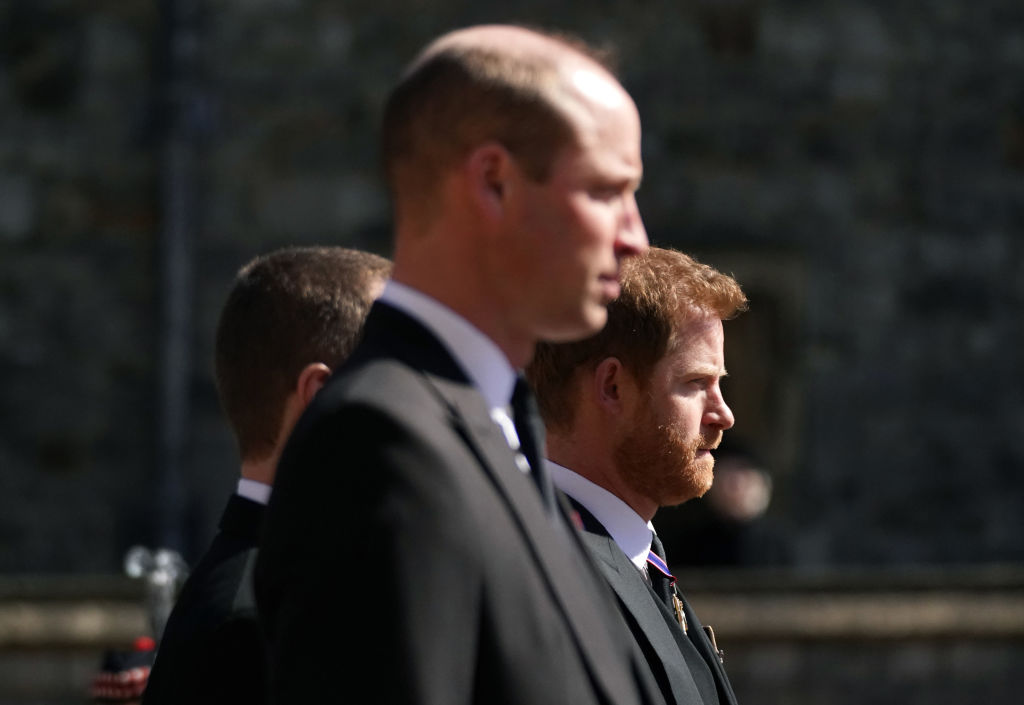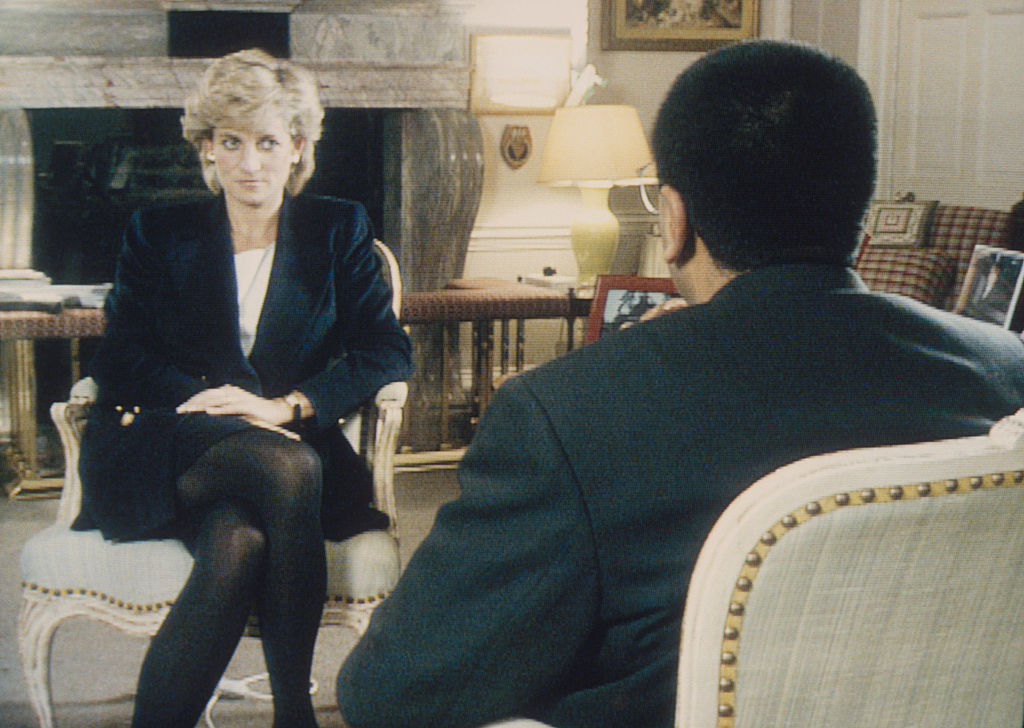
Prince William launched an unprecedented attack on the BBC on Thursday night, after an official inquiry found a 26-year-old interview with his mother Princess Diana had been obtained deceitfully and unethically.
The Duke of Cambridge condemned what he called the “lurid and false claims” made by then-BBC journalist Martin Bashir in order to gain access to the princess for the 1995 interview, in which she opened up about the collapse of her marriage to Prince Charles. “The deceitful way the interview was obtained substantially influenced what my mother said,” William said, and “was a major contribution to making my parents’ relationship worse.”
His brother Prince Harry, reportedly estranged from the family, also released a separate statement saying the kind of practices exposed by the inquiry were why “our mother lost her life.”
The results of the inquiry, and the princes’ outspoken attacks on the national broadcaster, will increase pressure on the government to introduce reforms to the BBC. Here’s what to know about the interview, and its impact a quarter-century after being broadcast.
Why was there an inquiry into the Diana interview?
The circumstances surrounding the interview with Princess Diana, which aired on the corporation’s main television channel in November 1995, have long been the subject of controversy.
In April 1996, media reports claimed that Martin Bashir, the BBC journalist who conducted the interview, had falsified documents to gain access to Diana. The BBC conducted an internal investigation into the circumstances surrounding the interview soon after, but concluded that Bashir had secured the interview fairly. However, 25th-anniversary coverage of the interview last year reignited concerns.
In November, Earl Spencer, Diana’s younger brother, gave an interview to a British newspaper laying out how he was shown fake bank statements by Bashir, purporting to show how one of his former employees had accepted payments from the press and from within the royal family. Spencer said it was this that induced him to introduce his sister to Bashir, who then convinced her to sit for the interview.
Spencer also showed the Mail on Sunday notes he had kept from a conversation he had with Bashir and Diana, shortly before the 1995 interview, in which the journalist had told them Diana’s mail was being intercepted and her car tracked, and that her friends and employees were plotting against her. According to Spencer, he also told them that Prince Edward was being treated for AIDS, and that Queen Elizabeth II was a “comfort eater.”
The same month the board of the BBC appointed John Dyson, a former judge and justice of the British Supreme Court, to conduct an independent inquiry into how Bashir obtained the interview.
What did the inquiry find?
Dyson concluded in his report on Thursday that Bashir had “deceived and induced [Earl Spencer] to arrange a meeting with Princess Diana.” Although he found Princess Diana would “probably have agreed to be interviewed by any experienced and reputable reporter in whom she had confidence even without the intervention of Mr Bashir,” the reporter used highly unethical means to obtain the interview, he said.
The BBC also failed in its editorial mission, Dyson said, both in not investigating fully enough claims about Bashir’s behavior, and in failing to broadcast those claims when they became public knowledge. “Without justification, the BBC fell short of the high standards of integrity and transparency which are its hallmark.”
What does Martin Bashir say happened?
In the internal investigation in 1996, Bashir admitted commissioning a graphic designer to create fake bank statements, and showing them to Earl Spencer. But he has always said that he was already in close contact with Princess Diana before he commissioned the statements, and that they played no role in his securing the interview.
In a statement released on Friday, after the Dyson report was published, Bashir said mocking up bank statements “was a stupid thing to do,” and that he regretted it deeply. However, he continued to insist that they had “no bearing whatsoever on the personal choice by Princess Diana to take part in the interview.”
In his submission to Dyson’s inquiry, Bashir took issue with Spencer’s notes of the meeting in which he made wild speculations about the royals. “How is it possible that someone seeking to ingratiate himself with a member of the Royal Family would make comments like this that not only appear to be me telling her what she has told her friends or employed others to do, but also that has allegations in it that could be resolved in a minute, in a second?” he told Dyson. “It just doesn’t make sense, and I believe that much of it is probably fabricated.”
But having interviewed both men and reviewed the evidence, Dyson sided with Diana’s brother. “[I] entirely accept the truthfulness and accuracy of Earl Spencer’s account,” he wrote.
Bashir resigned from the BBC, where he had been religion editor, on May 14, shortly before the Dyson report’s publication. He has been in poor health for several months.

What did Princess Diana say in the interview?
Diana spoke openly about her marriage, her struggles with postnatal depression and bulimia, and confirmed her extramarital affair with army officer James Hewitt. She also claimed, famously, that “there were three of us in this marriage”—a reference to Charles’s longstanding relationship with Camilla Parker-Bowles, whom he would go on to marry in 2005. The royal household, she told Bashir, saw her as a “threat of some kind.”
Did Diana believe she had been tricked into giving the interview?
Apparently not. In December 1995, about a month after the interview aired, Diana wrote Bashir a note saying “Martin Bashir did not show me any documents, nor give me any information that I was not previously aware of. I consented to the interview on [the BBC] without an undue pressure and have no regrets concerning the matter.”
But Diana was likely unaware that Bashir had shown fake documents to her brother in order to gain access to her, as the BBC investigation concluded it had no bearing on the interview. She died in a car accident in Paris in August 1997.
“If the BBC had properly investigated the complaints and concerns first raised in 1995, my mother would have known that she had been deceived,” Prince William said in his statement. “She was failed not just by a rogue reporter, but by leaders at the BBC who looked the other way rather than asking the tough questions.”
What has the BBC said?
The corporation swiftly issued an unreserved apology on Friday morning. The BBC’s director-general, Tim Davie, said “it is clear that the process for securing the interview fell far short of what audiences have a right to expect. We are very sorry for this. Lord Dyson has identified clear failings.”
He continued: “While the BBC cannot turn back the clock after a quarter of a century, we can make a full and unconditional apology. The BBC offers that today.”
What is likely to happen next?
The U.K. government may now look into the structure and governance of the BBC, which receives much of its funding from British taxpayers. Robert Buckland, the justice secretary, said on Friday that “the government does have a responsibility to look very carefully to see whether the governance of the BBC does need reform in the light of these devastating findings.”
The government is also currently reviewing how the BBC is funded, and has been criticized by members of the television industry for failing to do so transparently. On Thursday, an open letter signed by actors including Hugh Grant and Michael Sheen and writers including Neil Gaiman and Hilary Mantel called for an end to “short-sighted political and financial attacks” on public-funded broadcasting.
More Must-Reads From TIME
- The 100 Most Influential People of 2024
- Coco Gauff Is Playing for Herself Now
- Scenes From Pro-Palestinian Encampments Across U.S. Universities
- 6 Compliments That Land Every Time
- If You're Dating Right Now , You're Brave: Column
- The AI That Could Heal a Divided Internet
- Fallout Is a Brilliant Model for the Future of Video Game Adaptations
- Want Weekly Recs on What to Watch, Read, and More? Sign Up for Worth Your Time
Contact us at letters@time.com